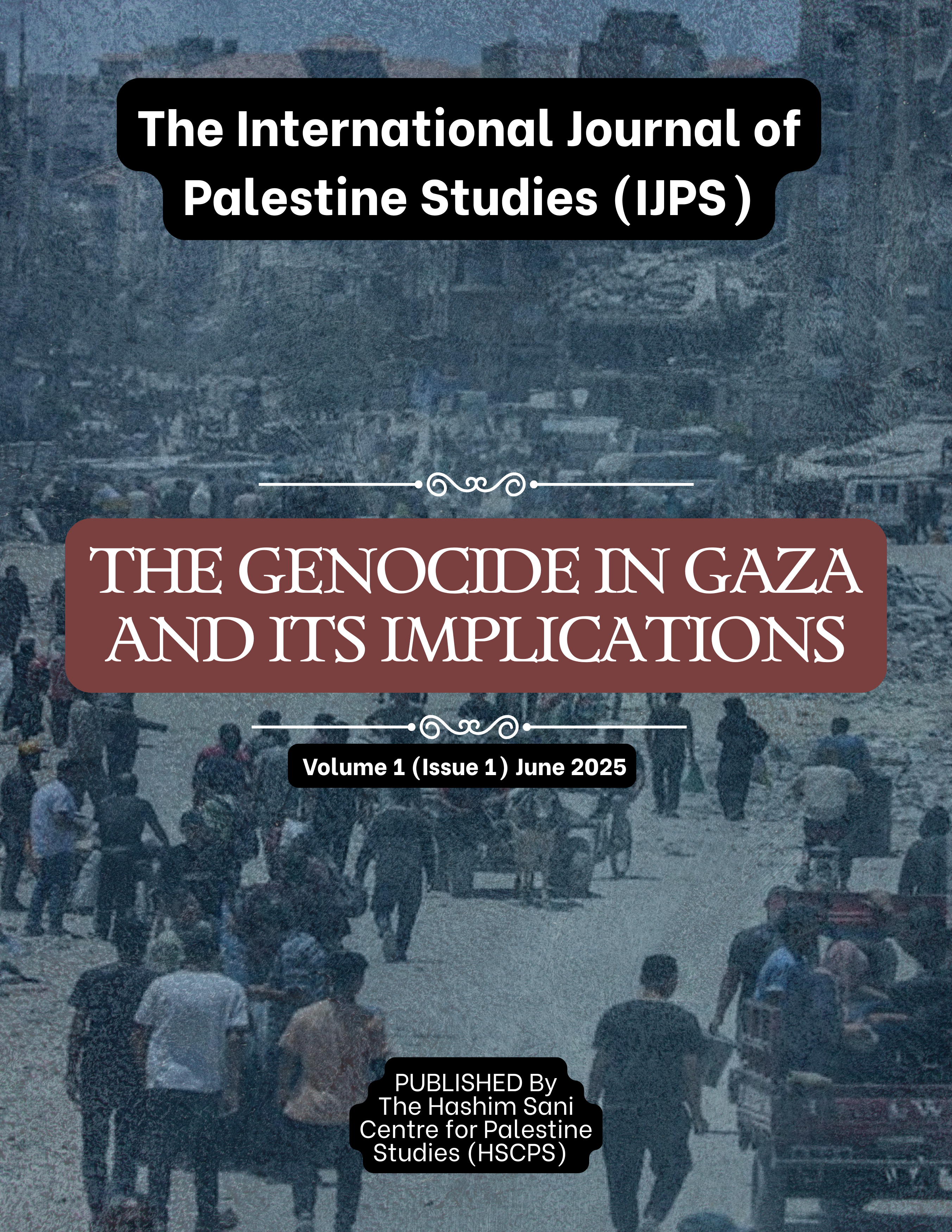Framing Resistance: Western Discourse, Double Standards, and the Dehumanization of Palestinians
Main Article Content
Abstract
This paper critically examines the persistent double standards in Western political and media discourse concerning state violence, resistance, and human rights, with a particular focus on the representation of the Palestinian struggle. While Western democracies often claim to uphold international law and moral responsibility, their support for Israeli military actions despite overwhelming evidence of civilian harm reveals a profound dissonance between stated values and foreign policy practices. This contradiction not only undermines global norms of justice but also entrenches a discourse that dehumanizes Palestinians and delegitimizes their resistance. The study adopts Critical Discourse Analysis (CDA) (Fairclough, 1995; van Dijk, 2001) to interrogate how language and power interact in Western media and political rhetoric. CDA enables the exploration of how ideologically loaded terms such as "terrorism," "self-defense," and "security" are employed to frame Palestinians as perpetual threats while obscuring the structural violence of occupation and apartheid (Pappé, 2006; Finkelstein, 2003). Drawing on postcolonial theory, particularly Said’s (1978) notion of Orientalism, the paper argues that Palestinians are persistently othered through orientalist tropes that portray them as irrational, violent, and culturally incompatible with Western values. The analysis is further supported by media framing theory (Entman, 1993), which highlights how selective emphasis and omission shape public understanding and policy outcomes. The findings reveal several key patterns: (1) Palestinian resistance is discursively delegitimized through labels like “terrorism,” ignoring legal justifications under international law; (2) Israeli actions are consistently framed as defensive, while Palestinian voices and historical grievances are marginalized; (3) orientalist tropes reinforce colonial hierarchies and justify violence; and (4) human rights discourse is applied inconsistently, suggesting a racialized or strategic hierarchy of victimhood (Butler, 2008; Douzinas, 2007). Ultimately, these discursive patterns are not merely rhetorical but serve to legitimize geopolitical asymmetries and reinforce settler-colonial domination in Palestine.
